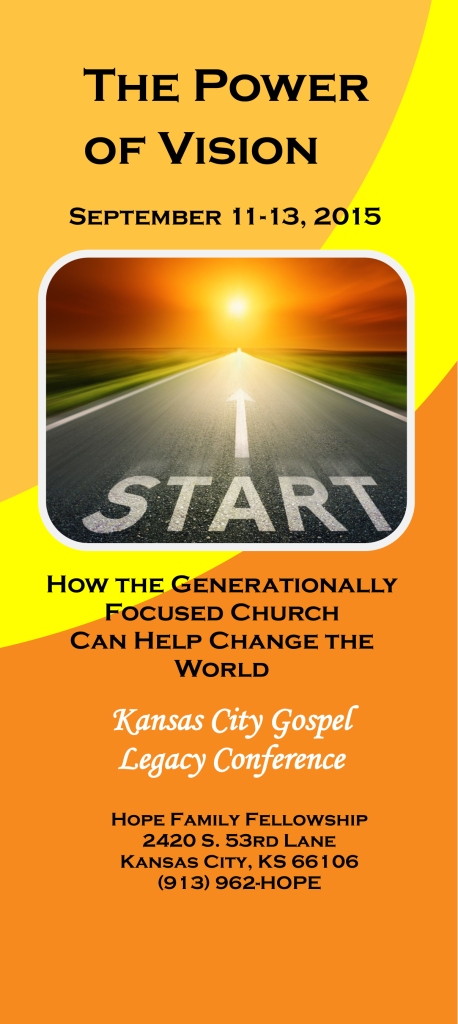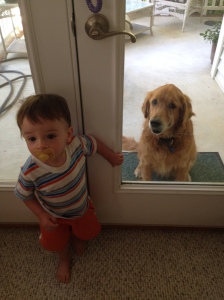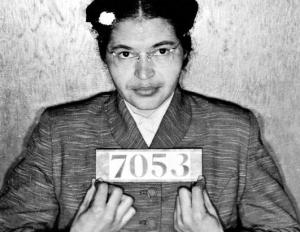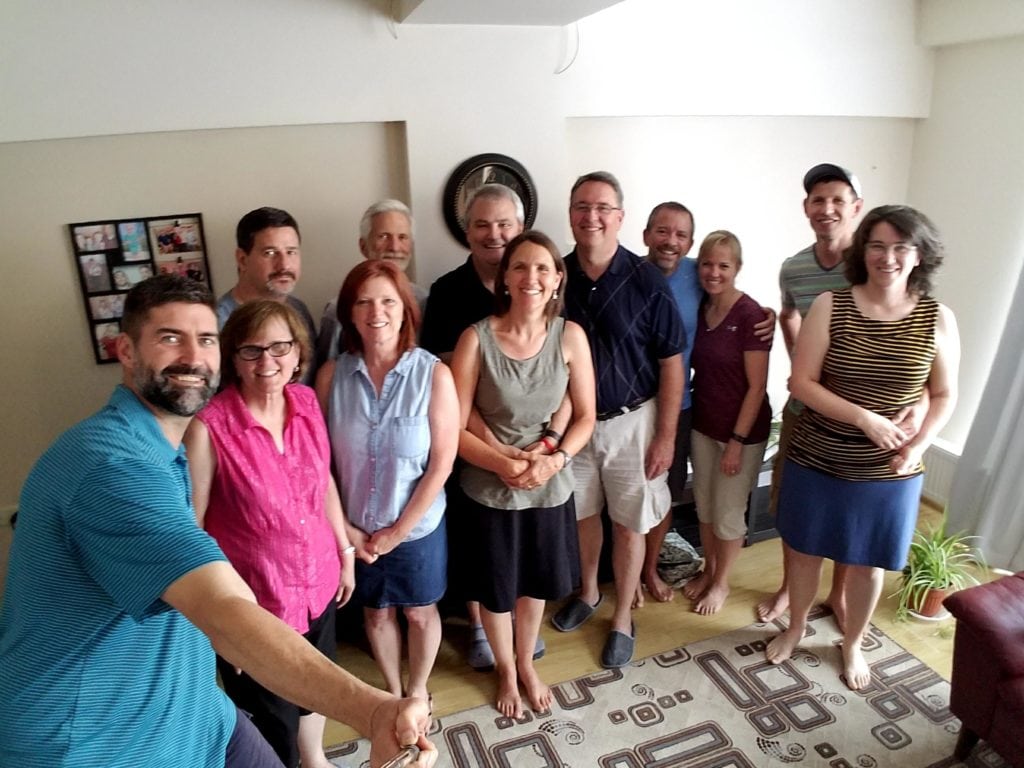filter posts:
Date
Author
Moldova Update
Good morning from Moldova!
The wonderful folks at World Team have worked hard to prepare for this week of ministry. They are, from left to right, Richard (AKA, long armed selfie stick holder), Bertie, Rodger and Sherri, Dave, (Jeff and AmyJo), Jeff, (you know who), and Sasha and Sara.
We will stay in Chisinau this morning for the first conference. It was supposed to be at a camp outside of town, but seven families in the church were struck with chicken pox this week! So, adapt and improvise. This first conference is with Good Shepherd, the church led by George and Alexei, whom you have heard Micah and I refer to from previous trips. I am told this is the only evangelical church in Moldova that is self-supported. The rest depend on funds from the west.
We will be moving from the apartment we are in to a hotel for one night, and then traveling tomorrow to Ocnita to stay with a family there, and present a conference all day on Monday.
Everyone is well, and we are excited to start the conferences!
Much love,
Mark
June 25, 2018
The Power of Vision conference
I was privileged to be able to speak recently at a conference in Kansas City on “The Power of Vision.” The subtitle was, “How the Generationally Focused Church Can Help Change the World.” The good news for you is that you didn’t have to fly or drive to Kansas to enjoy these messages. You can download them for free, here
October 6, 2015
Church Leadership
At Antioch’s next national conference for the church, September 12-14, we will offer a Leadership Track on Friday afternoon, from 12:45 until 5:00pm. Lunch will be provided at 11:45 for those who register. The topics we will discuss that afternoon include: “Leadership,” by Jeff Akin; “Fellowship” by Brad Shedd; “Discipleship” by Eric Burd; “Preaching” by Mark Fox; “Finances” by Jeremy Troxler and Dick Orcutt; and “Missions” by Jeff Klick. There will also be a Question and Answer period at the end. To find out more about the conference or to register, go to http://www.antiochfic.myevent.com/
July 11, 2014
A little boy and his grand-dog
 Robert Benchley said that a dog teaches a boy fidelity, perseverance, and to turn around three times before lying down. Henry Ward Beecher said that the dog was created especially for children, because he is the god of frolic. And we ALL know that little boys are made of frogs and snails and puppy dog tails.
Robert Benchley said that a dog teaches a boy fidelity, perseverance, and to turn around three times before lying down. Henry Ward Beecher said that the dog was created especially for children, because he is the god of frolic. And we ALL know that little boys are made of frogs and snails and puppy dog tails.
My youngest grandson, Owen, was looking out the door at our dog, Indie. I asked him to look at me so I could take a picture. Indie posed beautifully, don’t you think? Smiling, looking right at the camera. Owen went a little past center and ended up looking at my left knee. For five minutes before that he was standing and hitting the glass with both hands, making one-year-old noises through his pacifier, and having a great time in communion with our six-year old golden retriever.
Owen loves Indie, and she thinks he’s pretty special, too.
June 19, 2014
Antioch’s 4th National Conference on the Church
 I am excited to be able to announce that registration is open for Antioch’s fourth national church conference, to be held September 12-14, 2014.
I am excited to be able to announce that registration is open for Antioch’s fourth national church conference, to be held September 12-14, 2014.
Our theme this year? “Healthy Church, Healthy Family.”
Speakers include Jeff Akin, Eric Burd, Dr. Jeff Klick, Dr. Ryan Steenburg, J. Mark Fox, Scott Hahn, Shawn Curtis, and more!
A Leadership Track on Friday afternoon will offer practical encouragement for church leaders and those who aspire to be. The cost of the conference is minimal, and free housing with Antioch families will be offered on a first-come, first-served basis.
I look forward to meeting you in September, or renewing our fellowship.
Go to http://www.antiochfic.myevent.com/ or click on the flyer for more info and to register! Please feel free to share this information with anyone you think may be interested.
May 30, 2014
The first recorded sit-in
 We all know about Rosa Parks’ courage in 1955 when she refused to leave her seat on the bus. The law in Alabama was that blacks had to move to the back, or stand, if seats were needed by whites. Her actions resulted in the Rev. Martin Luther King Jr. taking a lead role in the fight for civil rights for African-Americans. Asked years later if she was afraid on that December day in Montgomery, Rosa Parks said, “I have learned over the years that when one’s mind is made up, this diminishes fear; knowing what must be done does away with fear.”
We all know about Rosa Parks’ courage in 1955 when she refused to leave her seat on the bus. The law in Alabama was that blacks had to move to the back, or stand, if seats were needed by whites. Her actions resulted in the Rev. Martin Luther King Jr. taking a lead role in the fight for civil rights for African-Americans. Asked years later if she was afraid on that December day in Montgomery, Rosa Parks said, “I have learned over the years that when one’s mind is made up, this diminishes fear; knowing what must be done does away with fear.”
Two millennia earlier, Paul and Silas may have participated in the first ever-recorded sit-in. Here’s how it happened. Paul and Silas were accused of being Jews (guilty!) and of “disturbing the city” (they were preaching about Jesus). I told you the story last week of how Paul and Silas were beaten without a trial, thrown into prison, and then a series of amazing events led to the salvation of the Philippian jailer. The next morning the Roman magistrates heard the news and just wanted to get rid of these two men. They sent their police to the prison to say, (and this is the Foxian translation) “Hey, we have great news! Your two men that we beat to a pulp yesterday, publicly? You know the two? Well, they can go free! In fact, the magistrates send their blessings and their best wishes for these men to be in peace.”
They expected the two men to be overjoyed, but instead Paul said, “So, you beat us publicly. And we are uncondemned. There was no trial, was there Silas? No, no trial. And, here’s the big one. Ready? We are Roman citizens.” At this point the two brutes must have gone pale and started sweating. But Paul was not finished. “And after we were beaten as uncondemned Roman citizens, we were thrown into prison and placed in stocks. Let’s review. Beaten in public. Thrown into prison. Put in stocks. All as uncondemned Roman citizens. And now the magistrates would like for us to receive their well wishes of peace and prosperity as we leave quietly out the back door, which by the way, I notice doesn’t exist anymore, thanks to my God. No, gentlemen, we will not leave. We will stay right here in prison until the magistrates themselves come and escort us out the front door.”
And they did. With apologies.
I don’t believe that Paul was thinking about himself and about his wounded pride at being beaten unjustly. He certainly wasn’t “suing for damages” from the Roman government. It wasn’t about Paul at all. He took a stand for the sake of others’ freedom in the city to worship Jesus. He was thinking about Lydia, a slave girl, and a Philippian jailer. He would write to the church later, “Do nothing from selfish ambition or conceit, but in humility count others more significant than yourselves. Let each of you look not only to his own interests, but also to the interests of others.” That’s the question to ask before we play the protagonist in anything. Is this for me or for others?
Make no mistake. There is a time to turn the other cheek when you’ve been slapped. There is a time to allow yourself to be wronged rather than take a brother to court. There is also a time to take a stand, or stay in your seat. Not to protect your own interests but to protect the interests of others.
May 26, 2014
The Voice of the Future?
I never get tired of hearing Ben Carson speak. The first time I heard the world famous pediatric neurosurgeon, he stood on the Whitley Auditorium stage at then Elon College and challenged the audience to stop making excuses. He talked about growing up poor in Detroit, being called “Dummy” in school because he was always the slowest one in class. He told us about trying to kill a classmate by stabbing him with a knife. The blade hit the boy’s belt buckle and broke, and Carson was shaken up to the point that he went home and prayed that God would help him change. It was about the same time that his mother turned their world upside down by requiring Ben and his brother to read two books a week from the public library and turn in a book report. She couldn’t read the papers, but they didn’t know that. Carson said his mother would make marks on the reports, highlight some sentences, and hand them back. “She taught us that we could never make excuses,” he said. That was the best thing we learned from our mother.”
I had the privilege of hearing Ben Carson speak again a few weeks ago in Virginia Beach. He challenged the graduating class of Regent University, some 1,400 strong, to make a difference in the world. Dr. Carson, now retired from neurosurgery, combined stories from his childhood with a sobering assessment of the state of the union. “We could very quickly become a third-world nation with the level of debt that we have,” he said. Carson described the dangerous mixture of fiscal irresponsibility and moral waywardness that threatens to take our country the way of the Roman Empire. One solution, Carson said, is to vote those out of office who keep voting to raise the debt ceiling.
Carson also challenged the 7000 in the audience to refuse to give in to political correctness. “I am not politically correct,” he said, “so I am likely to offend someone.” The crowd cheered. Carson said that we have become too sensitive, and that if you believe in traditional marriage in this country, in the eyes of the politically correct that makes you a homophobe. If you believe in the right to life for every unborn child, that makes you someone who hates women. “And,” he said, “if you disagree with a progressive black person, you’re a racist.” Carson urged the crowd to learn to engage in civil dialogue, not name-calling, and learn to listen to the other side. We need to understand that disagreement between two people on any issue does not make them enemies. He quoted Jesus Christ who said, “A house divided against itself cannot stand.” Carson even encouraged the students read the works of those who, as he said, have tried to destroy the Judeo-Christian heritage of our nation. Saul Alinksy, for example, taught his ‘followers’ not to engage in conversation with those with whom they disagree, because that humanizes the person that you need instead to demonize.
What’s next for the man most noted for being the first to successfully separate conjoined twins who were joined at the head? Dr. Carson continues to speak and write. His latest book is called, “One Nation.” He writes a column for The Washington Times. But The National Draft Ben Carson for President Committee has a second career in mind for the doctor. The super PAC has raised nearly $4 million as of March 31. There is also an online petition at runbenrun.org that is growing daily.
We may be hearing a lot more speeches by Ben Carson.
May 16, 2014
A Lesson in Humility
 I got to run the Tar Heel Ten for the second time a few weeks ago. It’s one of my favorite races, mainly because it takes place in Chapel Hill. It’s usually near the end of April, so the dog woods and azaleas are blooming, and the course takes you through campus, down Franklin St, through some beautiful neighborhoods, and then into Kenan Stadium for the finish. Ten miles is a great distance, because it is not a sprint, like the 5K or even the 10K, but it doesn’t include quite as much pain as a half-marathon. I love it!
I got to run the Tar Heel Ten for the second time a few weeks ago. It’s one of my favorite races, mainly because it takes place in Chapel Hill. It’s usually near the end of April, so the dog woods and azaleas are blooming, and the course takes you through campus, down Franklin St, through some beautiful neighborhoods, and then into Kenan Stadium for the finish. Ten miles is a great distance, because it is not a sprint, like the 5K or even the 10K, but it doesn’t include quite as much pain as a half-marathon. I love it!
My goal this time was to run less than an 8:30 pace per mile, since that was what I did the first time. So I figured I would start with the 8 mile pacers and hang with them as long as I could, making sure that I finished well ahead of the 8:30 guys. It was not a smart plan, for two reasons. First, I was fighting a sinus infection and had a head full, and was still coughing some, too. Second, it wasn’t smart because I am not used to training at 8 minute pace. Most of my training is at 8:30, and when I really go for it, I have been able to get down to around 8:10 or 8:15.
I was starting to drag at around mile 7 or so, and that’s about the time that David Bainbridge caught me. He’s a good friend and a fellow church member. He told me he had been trying for about 4 miles to catch me, and I told him I was amazed that I was ever ahead of him to begin with! But, that was the problem; I started out too fast, which is a common mistake with runners. And by the time David caught me, I was paying for it. But we ran together for a while…until we got to Laurel Hill. The Tar Heel Ten is not just known for the beautiful scenery; it is known for the brutal hill at about mile 8.5. It is a steady climb, then a plateau, another climb, and then a downhill. You think you’re in the clear and then there is another hill to climb. It’s nasty. And to add an extra challenge, the race organizers time you on the hill! When you get your results at the end, it includes your overall time, and your “Laurel Hill climb-time.” Not funny. Anyway, David left me on the hill; I was dragging. But then after the hill was done, I looked ahead and there he was: waiting for me! I caught up and said, “David, you didn’t have to wait for me.” He laughed it off and said, “Hey, I wanted to run WITH you!” We finished the race together, as you can see from the picture. He’s the stronger, younger runner on the left, in the darker blue.
When I told my wife about it later, she said, “David was more interested in encouraging you than beating you.”
That about sums it up. Then I thought….if the shoe were on the other foot, would I have done the same?
I think I would. I hope so, anyway.
Thanks, David. You taught me the best thing I learned that day in Chapel Hill.
May 8, 2014
Be famous for your faith
How much has your faith grown in the past five years? When Paul met Timothy, the young man was only about five years old in his faith. Most likely he had become a follower of Jesus Christ when he heard Paul preach on the apostle’s first missionary journey. Five years later, Paul came through town again and heard about a young man who was “well spoken of by the brothers at Lystra and Iconium.” Timothy had grown so much in his faith that he was famous for it, not just in his hometown but in the neighboring town as well. It would be like being ‘famous’ for your faith in Burlington and in Greensboro. It begs the question: is that the kind of fame so many crave these days?
Stuart Wolpert reported in 2011 about a study done by a team of UCLA psychologists who examined the values of TV characters in the shows most popular with preteens over the years. They looked at the values espoused by characters in Andy Griffith and I Love Lucy from the 60’s, Happy Days and Laverne and Shirley from the 70’s, and American Idol and Hannah Montana from more recent times. The most frequent value of contemporary shows was found to be “fame.” Between 1967 and 1997, the top value had been “community feeling, or being part of a group.” That value suddenly dropped to eleventh place. The second most frequent value in 1967, “being kind and helpful to others,” had plunged from second to thirteenth place. The predominant message of today’s preteen shows seems to be that a successful life is all about finding a way to be famous. One of the researchers said, “I was shocked especially by the dramatic changes in the last ten years…If you believe that television reflects the culture, as I do, then American culture has changed drastically.”
I think we all would agree that the times, they are a-changing. But here’s the thing. Those whose lives are transformed by a relationship with Jesus Christ are called to change the culture, not be changed by it. There were hundreds of young men and women in those two Greek cities Paul visited who were conforming to the culture, just as there are today in every city. But there are also young people who, like Timothy, are changing the culture through their godly influence. They are using their intellect to study science and math and language and history, and seeing everything through the lens of Biblical truth. They are using their hands to serve the poor and work hard at their jobs. They are keeping their bodies free from drugs and saving their sexuality for marriage. They are using their voices to speak the truth, and they are shaping the culture rather than being shaped by it. They are growing in their reputation as young men and women of faith.
Where is your faith now as compared to five years ago? Are you more confident in your faith, more settled in the Word, more committed to the church than you were five years ago? Would you say that you have grown in your relationship with Jesus in the past five years, that you love Him more now than you did then? I hope many of you could answer that with a resounding yes. If not, then I would challenge you to start a new five year period today. Right now.
Oswald Chambers said, “One life totally devoted to God is of more value to Him than one hundred lives which have been simply awakened by His Spirit.”
May 5, 2014
Mississippi miracle
As I was preparing to preach on the resurrection of Jesus Christ this week, I remembered the story I heard earlier this year about a man named Walter Williams. Just imagine opening the newspaper and reading this lead sentence: “Workers at Porter and Sons Funeral Home were preparing to embalm Walter Williams on Thursday when he moved.” Yep. Seems Walter’s pacemaker had stopped working temporarily, so the hospice nurse called the coroner. He came, examined Walter Williams, couldn’t find any vital signs, put him in a body bag and sent him to the funeral home. As they got him into the embalming room, he started kicking and moving. So they took him to the hospital. “The coroner said, ‘Mr. Williams’ family were rejoicing and “just in a state of shock” after learning of his recovery.”
That tells me two things. Number one, don’t get sick in Mississippi, whatever you do. Number two, when the one you thought was dead is now alive and well, you are going to rejoice and be in shock all at the same time. That’s the way it was for the women who went to the tomb on that great getting-up morning outside of Jerusalem in circa 33A.D. The stone they expected to see blocking the tomb, and that they were trying to figure how they were going to move…was rolled away. Surprise number one. Then, the body they expected to find, which they had come to anoint, was not there. Surprise number two. I love the angel’s question for the women as recorded by Luke: “Why do you seek the living among the dead?” The truth is, they WEREN’T seeking the living among the dead. They were seeking the DEAD among the dead! But Jesus was not there. The tomb was empty. Not only that, the angel said that Jesus would meet them, and the disciples, in Galilee. Surprise number three. The tomb was not empty because someone had stolen the body. The tomb was empty because Jesus is alive.
Which begs the question: if it is true that Jesus Christ of Nazareth was crucified on Friday, just as He said he would be, and was raised from the dead on Sunday, just as He said He would be, what should we think about everything else that Jesus did and said? He said, for example, “I am the way, the truth, and the life. No one comes to the Father except through Me.”
April 17, 2014



